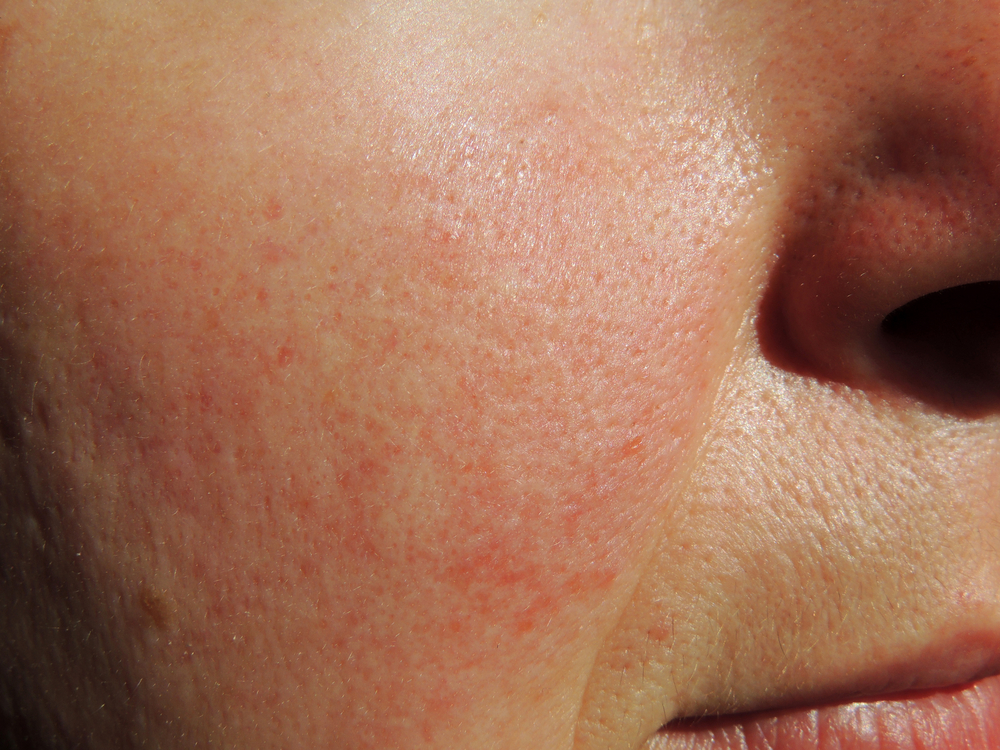
Rosacea Treatment in Hagerstown
Rosacea is a chronic skin condition that can cause individuals physical and emotional discomfort, especially when experiencing a flare-up.
For many patients, learning their triggers and managing symptoms often provides tremendous relief.
What Is Rosacea?
Rosacea is more than just redness or flushing of the skin on the nose, cheeks, forehead, and chin. There are four subtypes of rosacea.
The first subtype is often characterized by flushing, redness, visible blood vessels, dry, rough, and scaly skin that may sting or burn.
Acne-like breakouts, oily skin, raised patches, and blood vessels represent the second subtype.
Skin that appears thick, especially around the nose, bumpy, and oily, with enlarged pores and visible blood vessels suggests a rare third subtype of rosacea.
Ocular rosacea affects the eyes. Patients often present with a bloodshot, watery appearance and report burning, stinging, dryness, blurry visions, photosensitivity, and gritty feeling in the eye.
Who gets rosacea and why?
A patient of any age, gender, or skin type can be affected by rosacea.
However, it is more predominant in individuals 30-50 years old that are fair and of Scandinavian or Celtic descent. These patients may also have a family history of rosacea or have experienced cystic and nodular acne in the past.
Additionally, scientists believe that immune system responses, intestinal bacteria, skin mites, and the body’s ability to process a skin-protecting protein may be factors that influence the occurrence of rosacea.
Diagnosis
Dermatologists are able to diagnose rosacea based on a patient’s past medical history and examination of the skin.
They may perform testing to rule out other medical conditions like lupus or allergies before determining that the patient has rosacea.
Treatment Options
While there is not a cure for rosacea, there are treatment options to decrease flare-ups, alleviate discomfort, and prevent the condition for worsening.
Learning and avoiding triggers can be highly effective in managing rosacea. For some patients, triggers may be heat, cold, sun, or spicy food.
Additionally, sun protection is essential, and dermatologists recommend daily use of broad-spectrum sunscreen with at least a 30 SPF. Protective clothing, including hats, staying in the shade, and limiting sun exposure between 10 am and 4 pm can also shield sensitive skin from harmful ultra-violet rays.
Lastly, it’s important to develop a skincare regimen consisting of gentle products. Depending of the subtype of rosacea, topical products, oral medication, and in-office laser procedures may improve appearance and self-esteem.
For additional information about rosacea and treatment options, please call our office today to schedule an appointment.
To learn more about rosacea and treatment options in Hagerstown or the surrounding Frederick area, contact us today to schedule a consultation.
